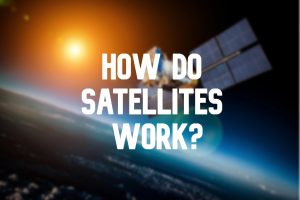OT Interviews: Five Questions with ESCAPE Project’s Dr. Massimiliano Vasile
14th Nov 2022
This week, Orbital Today continues its “Five Questions With…” interview series with ESCAPE Project head, University of Strathclyde professor Dr. Massimiliano Vasile. ESCAPE, short for Exploration of the SpaceCArrying capacity ProblEm, is one of several projects in which Dr. Vasile explores the limits of our ability to sustainably develop the space industry.
What is the ESCAPE project and what brought it about?
Regarding ESCAPE and how it came about, years ago, the life cycle of a space system was of no interest. It’s become a fashionable thing to do because it’s become a serious problem. ESA and other agencies started asking how many satellites could be in an orbit before it’s too much. Their metrics for an orbit’s capacity consider the total density in the orbit.
It’s a statistical assumption, but you don’t have any real knowledge of whether a satellite you put up will survive. So, instead, in ESCAPE, we mimic an environmental and ecology approach and ask if this environment is thriving. In space, the main resource is space itself. In other studies, they’re not measuring space, they’re measuring probabilities.
We can find a more detailed description of how many objects can coexist without a collision because almost any collision can have serious consequences.
Considering how many satellites are being launched these days, who would be interested in changing the way things are done now?
Governments are interested in knowing these things, and insurance companies will be as well. The insurance companies do not have a good way to know how to insure something in space.
Looking at space debris used to be insular; the people who were looking at space debris were only looking at space debris. The EC and ESA and others progressively ramped up their attention, especially after the 2009 Iridium and Cosmos collision, and the Chinese anti-satellite ‘experiments’.
Insurance companies will become involved not far in the future. There are so many people looking at the problem now. But there is a great question mark in what’s the risk and how much do you have to pay. And then, there is a lot of stuff that is unknown and cannot be known.
For instance, if you insure a car, the insurer knows everything about it. And if you have an accident, the insurer often sends the car t a mechanic the insurer knows, so he knows everything about that. And you can easily insure an airplane. But not a spacecraft.
And in this case, you can’t leave it completely in the hands of the private sector. At the end of the day, it becomes a matter of regulation, of managing traffic, and fines.
Would private industry accept regulation in space, though?
Commercial companies will have to come around to regulation because they’ll understand that they can’t operate without it. Before the New Space era, management had been in the hands of the military to keep their things safe. That isn’t going away. But at the same time, New Space has become a really important source for economic return. Operators will want a safe way to operate in space and there will be a choice.
If you look at Air Traffic Control, it’s something that happened little by little. Air traffic is heavily regulated, and no operator would be able to work by ignoring it and we’ll reach a similar point someday.
But fundamentally, space grew in a different way. It started essentially with two nations, and shifted with the balance of power. And with the rise of commercial operators, there’s a lot more push to be regulated.
But as of now, there’s no real understanding of the risk. And the issue is that there is no real mechanism to enforce the rules. China blew up its own satellite. That’s a real problem. If you blow up a car, the debris is in a relatively confined area. But in space, that area keeps growing. So enforcement is a sticking point. If you blew up a satellite, the debris keeps diffusing, and you end up damaging everything in a region of space. But because you can’t track debris…
Who cleans up what in space?
The military is now realizing that it’s a much bigger problem than before; governments are becoming aware that the problem’s growing very quickly. The irony is that science and technology had anticipated the issue but hadn’t received funding to look into it.
At the same time, there are companies talking about recovering satellites, but not this kind of removal. There’s no commercial gain to be had. It’s like a snow plow on the highway. It must be the government that handles this.
ESCAPE has received ESA funding. Where does the funding for space science projects in the UK come from these days?
UK Space Agency is making funding calls in general. MoD is putting money into this as they find satellites very interesting. The research councils are not emphasizing space overall, but the STFC are interested in sensors.
If you’re looking outside the UK, ESA is absolutely fundamental. There’s some funding from the European Office of the USAF. Otherwise, it comes down to cooperation with other countries’ companies, but the options are limited.
![Beauty of the Pink Moon And Lyrid Meteor Shower in This Week’s Best Astrophotos [19-26 April] Beauty of the Pink Moon And Lyrid Meteor Shower in This Week’s Best Astrophotos [19-26 April]](https://orbitaltoday.com/wp-content/uploads/2024/04/Pink-Moon-is-on-its-way-above-the-mountains-1-300x300.jpg)





Thank you for your comment! It will be visible on the site after moderation.